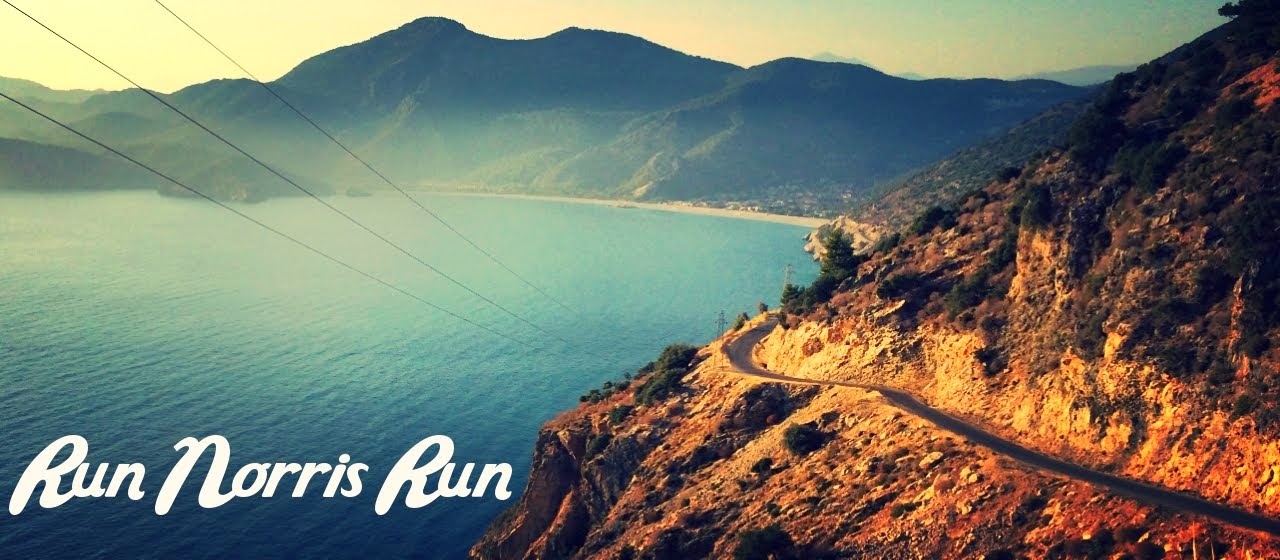As published on David Lloyd
Craig Norris

Triathlon level: Iron-man
Favourite Triathlon: Ironman Wales
Next Triathlon: I quite fancy the Norseman
Longest triathlon distance: Ironman
Best time: 11 hours 49 minutes
Favourite stage: Run
What made you decide
to compete in a triathlon?
I was flicking through a magazine one day
- must have been back in 2010 - when I came across an interview with a Chrissie
Wellington. It read that she was a champion at something referred to as Ironman
triathlon. My brain couldn’t quite compute the distance of the event – “…and
then you run a full marathon, huh?”. Soon after, I was in the pool teaching
myself to swim (proper).
How did you go about
picking a triathlon distance?
It was only ever going to be Ironman
distance after that. I entered a couple of Olympic distance events beforehand
to practice transitions and indeed triathlon too I guess.
Had you done any
swimming, cycling or running before deciding to compete in a triathlon?
I could swim and cycle
but not to any real standard. I certainly couldn’t knock out continuous lengths
in the pool. I spent a couple of years regularly swimming, watching YouTube
tutorials and entered some open water events. With the cycling, it was pretty
much blagged though the running had given me some strong legs to start.
If you’ve competed in
a triathlon before, what is your top tip for the day?
There are few more intense
groups in society than triathletes. Whether they’re seeking to shave 47 grams
off of the weight of their pedals, discussing their power to weight ratio or shopping
for £500 wetsuits that claim to reduce drag and improve catch, don’t get
involved in the conversation. Around you on the day will be aero-helmets, disc
wheels and Ironman tattoos. Keep the faith and know that you will get through the
paddling, pedaling and plodding, however simple your kit.
Do you have any tips
for the swimming stage?
Don’t panic. Whilst you may feel as if
all around you are chatty and jovial, rest assured everyone is nervous. Unless
you are looking to compete for the podium your aim should be to get through it
in one piece. Don’t get caught up at the front and take a wide turn at the
buoys.
Do you have any tips
for the cycling stage?
The bike leg is the one leg where you are
counting on more than just your body to hold together. There are many things
that can go wrong on the bike, most of which can be limited and overcome with a
thorough bike check beforehand and the knowledge and confidence to repair minor
malfunctions on the day. Just having the peace of mind that you can change a
tyre will make you feel a lot calmer.
Do you have any tips
for the running stage?
When you leave T2 your legs will feel
like lead. Rest assured this will dissipate. Concentrate on the quality of your
stride rather than the pace of it to ease yourself in. For an Ironman walk
through the aid stations to digest nutrition and to break up the distance into
manageable chunks.
What would you say
your strongest stage is and why?
As a runner first and foremost the run
leg undoubtedly is my strongest. It’s also fortunate that it’s the final
discipline, so having the confidence to knock out a marathon is reassuring.
How do you structure
your training for a triathlon?
The logistics behind training for
triathlon are vast. It’s not merely the time spent exercising itself but also
the setup of equipment, the to and fro of hitting the pool and all the
researching and planning involved. Therefore it pays to combine disciplines in
training, be it running off the bike or running to the pool. I aim to run commute
each day, some days via the pool with the vast majority of my cycling done on a
turbo trainer of an evening and on weekends.
What is your favourite
moment from a past triathlon?
That first time you enter the red carpet
of an Ironman is rather special. A real life moment. An Ironman marathon is run
on a looped course – where competitors collect coloured armbands on each one – so
the crowds are well aware when you’re ‘heading home’. Those last few miles are
electric and this escalates further when you turn off for the finish line. The
end of a long day - “*insert name* -
YOU ARE an Ironman”.
 Craig has written a post about his first Ironman and also features in our marathon series. Check them out and follow him on Instagram.
Craig has written a post about his first Ironman and also features in our marathon series. Check them out and follow him on Instagram.



